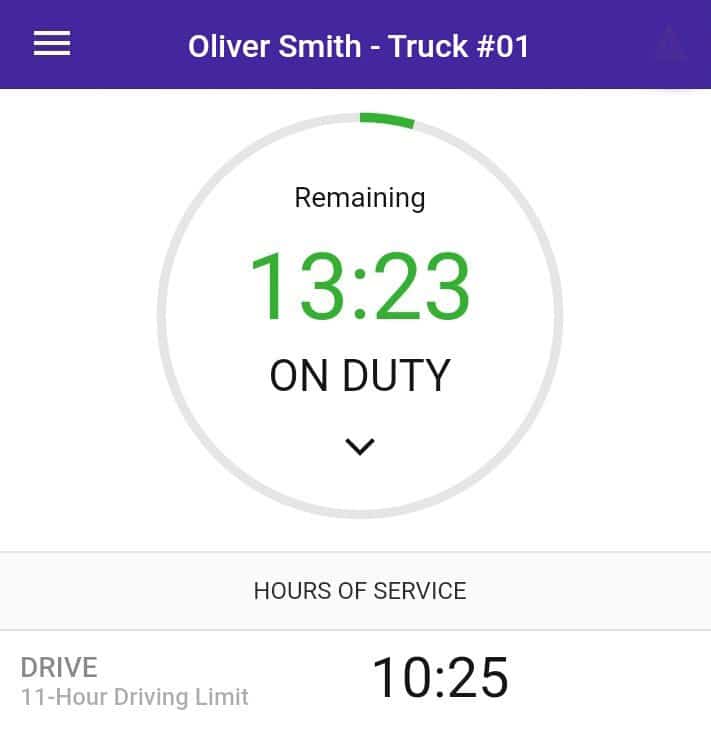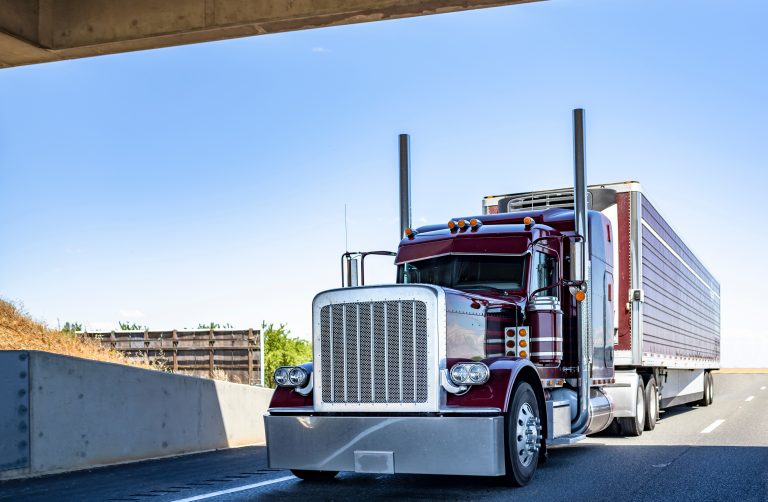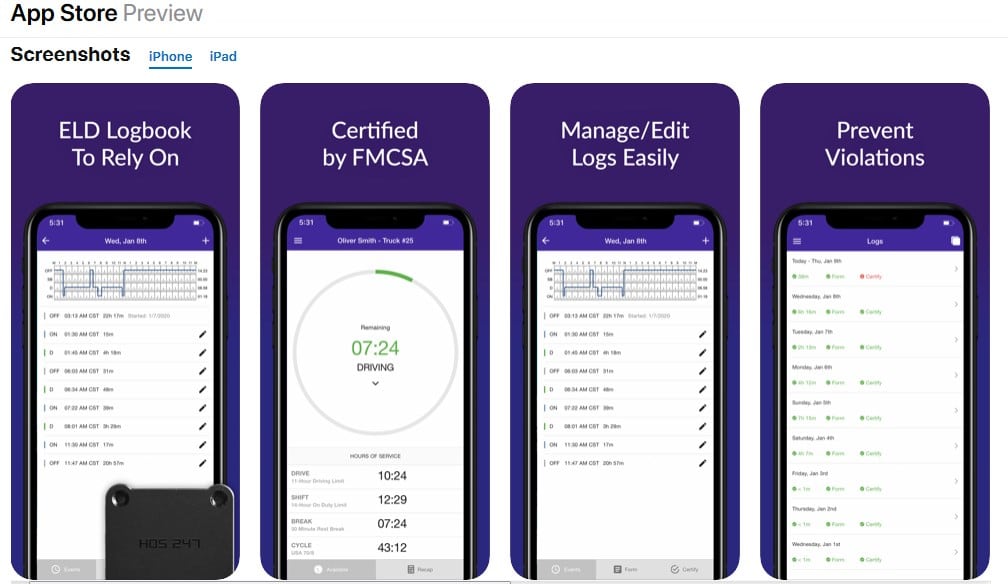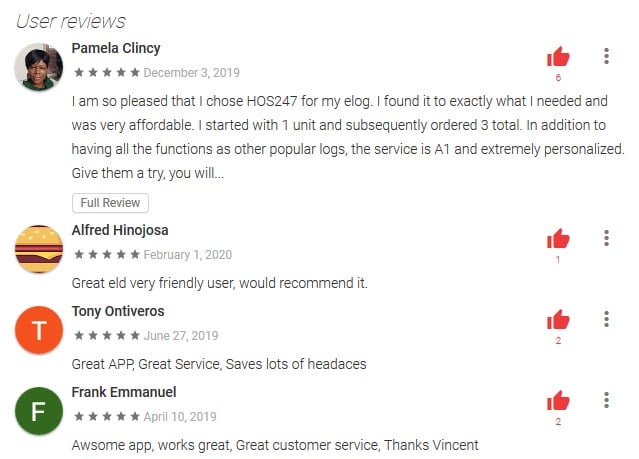Trucking companies need to find solid solutions that help them to stay within their Hours of Service regulations. Making mistakes about this one crucial aspect of their company can be quite costly when DOT audits come around. Not only do these mistakes cut into the bottom line of the business, but it can put people at risk when tired drivers are behind the wheel of their vehicles. This is why all companies should be on board with finding the appropriate ELD mandate HOS app to help them with their business.
Choosing an Industry Leader
Companies in the market for ELD mandate software should be searching for the leaders who really stand out in the industry. HOS247 has been a longstanding leader offering both a convenient HOS app for drivers and hardware for the transportation industry. Our company has been around for a while, so you know that we are not here just to pad our pockets with the rise of the ELD mandate. We are committed to providing you with the highest level of customer service in the industry.
Our team is multilingual, making it easier than ever to receive help in English, Spanish, Russian, or Polish. When you call in to ask questions, you won’t wait on hold for hours just to speak with someone who doesn’t know you or understand your business. Each company that signs up with HOS247 is assigned to a dedicated account manager that can handle any question that arises.
One of the main advantages to going with HOS247 for your ELD app is that there are no contracts. Companies can try us out with no long-term commitment at stake. Our company is so confident that truckers and businesses will love our product that we offer hassle-free two week returns!
Do you have any questions? Talk to ELD Advisor: 650-405-3372 or Request Callback
Are ELD Mandate Apps FMCSA Compliant?
Many trucking companies are looking for the most cost-effective solution that will be FMCSA compliant. They wonder whether the simple ELD mandate apps that are on the market will be sufficient for these purposes. In short, the answer is yes but they must be a part of an electronic logging device system.

A Bring Your Own Device approach to the ELD system is great because truckers can use their own mobile phones to conveniently track their Hours or Service or Records of Duty Status. With this type of system, companies do not have to install an in-cab device to track the hours. A mobile phone does all of the required work and costs less to implement.
This is where some of the confusion comes in. According to the FMCSA, an electronic logging device must be connected to the engine. An ELD app cannot do that on its own. Instead, the apps work in tandem with a Bring Your Own Device approach because they connect with the system and display the information that the engine-connected device records.
To break it down further, the ELD connects to the engine and sends the information to the app where it can be monitored by the driver and supervisor. As long as there is an ELD or a hardware device that connects to the engine of the vehicle and cannot be altered, the e-log apps can be FMCSA compliant.
Android or iOS Apps?
There has been a longstanding debate about whether Android or iOS apps are preferable, particularly when it comes to these ELD apps. The truth is that it does not really matter which operating system is used to keep track of the Hours of Service or Records of Duty Status. HOS247 offers both Android and iOS apps that work great. It is simply a matter of convenience and preference for the driver.
For example, consider the technology that the majority of your drivers already use. If they are connected via Apple products, it may be best to stick with the iOS operating system that they are familiar with instead of switching to Samsung or Google products that run on Android. There are no hard and fast rules about this topic, but any respectable ELD provider should offer both options for driver convenience.
Who Must Comply with the ELD Mandate?
More than three million drivers are impacted by the ELD mandate, so trucking companies need to make sure they are covered if necessary. If a driver is required to maintain Records of Duty Status (RODS), then they are required to use an electronic logging device in their vehicle. Most drivers must follow the Hours of Service regulations if they are involved in interstate commerce and:
- The vehicle weighs more than 10,000 pounds.
- The vehicle has a gross vehicle weight rating or gross combination weight rating of 10,000 pounds or more.
- The vehicle is designed to transport sixteen or more passengers including the driver for free.
- The vehicle is designed to transport nine or more passengers including the driver for a fee.
- The vehicle is transporting hazardous materials in a quantity requiring placards.
Of course, there are a few exceptions to the above rules. Truckers may not be required to keep a 24-hour Record of Duty Status if they are:
- A driver-salesperson whose total driving time does not exceed forty hours in any seven consecutive days.
- An oil field carrier focus on the transportation and usage of oilfield equipment.
- Short-haul CDL drivers operating within a 100 air-mile radius of their normal work reporting location.
- Non-CDL drivers operating with a 150 air-mile radius of their normal work reporting location.
Key Requirements of the ELD Mandate
Many trucking companies are still uncertain what the key requirements are of the ELD mandate. Fortunately, the FMCSA ELD mandate extension has outlined them in clear terms that are easy to understand. They have set specific performance and design standards that require programs to be certified and registered with the FMCSA. These electronic logging devices must be synchronized with the ECM of a commercial vehicle and must record the required information such as:
- Duty status
- Engine hours
- Vehicle miles
- Location
Along with the ELD rule, it provides clear recourse for drivers who believe they have been harassed. It keeps neat and tidy records of their driving history so that they can defend themselves and their actions if necessary.
Why Switch to a Better HOS App?
When it comes down to it, it may be time for your trucking company to find a new service provider for your ELD app. Here are a few red flags that you should watch out for with your current provider.
Lack of Support
How long do you spend waiting on hold just to reach a customer service representative who can’t answer your question? Long hold times and unhelpful staff should be the first sign that a company is not a great fit for you. In comparison, HOS247 assigns you a dedicated account manager who assists you with everything you need. You always know who is going to be on the other end of the line and they can actually help you to resolve your issues.
Complicated Processes
A good ELD app should make the lives of your back-office staff and truckers significantly easier. With just a few clicks of the mouse or taps on the screen, staff members should be able to access all of the information they need. Office staff should be able to quickly pull reports and spend less time monitoring time logs than ever before. If they are finding the system to be cumbersome and complicated, it is definitely time to switch to a more effective system.
Similarly, drivers may be making complaints about the experience of using the app. While it is normal to have a small learning curve in the beginning, be wary of long-term complaints. Unhappy drivers are not going to want to use the technology which can spell major problems for the company’s bottom line. Make sure that they are satisfied with the software since they are the ones on the front lines using it daily.
Hidden Fees
Are you surprised by that whopping bill that came in last month? Not all companies are transparent with what they charge. They may tack on hidden fees for installation, training, and even device activation. If you are shocked by the bill, you may want to consider switching to a company with more straightforward pricing.
New Providers
Did your solution provider pop up after the FMCSA ELD mandate was put into effect? Many tech companies came up with solutions after the fact in order to line their pockets with cash. Instead, you should search for a company that has been in business for a while. These long-standing companies have more experience building solutions with drivers in mind instead of profits.
Do you have any questions? Talk to ELD Advisor: 650-405-3372 or Request Callback
Choosing HOS247
If your trucking company is looking for the best HOS app on the market, you should consider signing up for a hassle-free two-week trial with HOS247. We don’t lock you into long-term contracts and we have been proven leaders in the industry. Let one of our dedicated account managers help you boost your business and stay compliant with the ELD mandate.

I’ve co-founded, built and managed several transportation-related businesses. Now, I’m a founder and CEO of HOS247 – an AI Transportation Platform for trucking companies, freight brokers and other logistics operations. We are transitioning old-style operations to technology-advanced logistics entities and help them to grow their businesses. ELDs (electronic logging devices), fleet tracking and management 2.0 combined with AI-powered dispatch tools.












Electronic logging devices (ELDs) have revolutionized the trucking industry, providing a more accurate, efficient, and secure way for truckers to record their hours of service (HOS) and ensure compliance with federal regulations. The Federal Motor Carrier Safety Administration (FMCSA) mandates

Electronic logging devices are the legally required way to record drivers’ hours of service (HOS). If you’re on the lookout for a new elog option for your fleet or trucking company, then you need to find ELD devices for sale

The trucking industry is undergoing a significant transformation, driven by the need for increased efficiency, safety, and compliance. As the landscape of fleet management evolves, it is crucial for trucking companies to adopt innovative solutions to stay competitive in a

